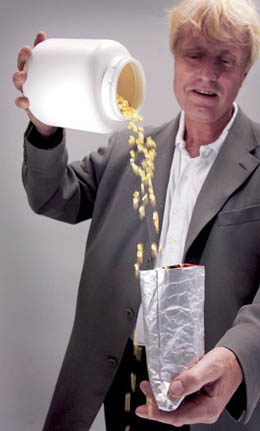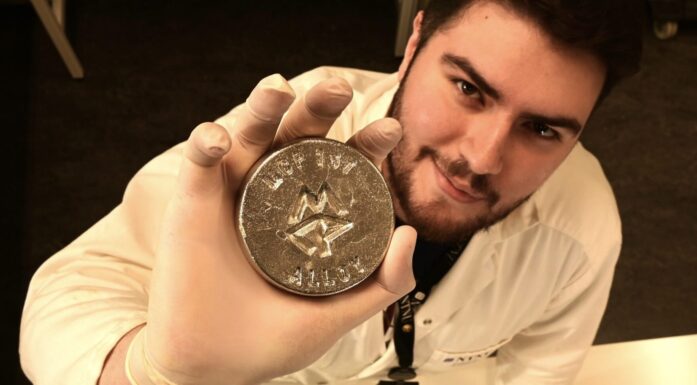Instant success
Midt ute på en ungarsk åker tørkes erter og mais etter oppskrift fra Trondheim.
After several years of research, and a series of patents on atmospheric freeze-drying, Dtech AS has recently opened its Agro Aroma/Agro Dry food processing plant in Hungary. “This is a successful realisation of research,” says Ingvald Strømmen, one of the company’s founders and a professor in refrigeration engineering at NTNU. “We have come far enough along in our research that conditions are now ripe for commercial success.”
WORLD MARKET OPEN
It has taken Dtech four years to complete construction of the Hungarian plant, which has the capacity to preserve several different types of products.
The plant will begin with the freeze-drying of peas and corn. The plant will be able to produce approximately 700 freeze-dried tons per year. The special method of production yields higher quality food at a slightly lower price.
“One of the key features of this approach is that we avoid shrinkage, which makes the products very “instant” — they absorb liquid fast,” says Strømmen, who estimates that his products will soon be found in instant soups and dinners around the world.
Potential customers have already shown an interest in the method, and the company is negotiating with large, international food retailer chains in both Europe and the United States about its first deliveries.
CHEAP, SIMPLE, GOOD
The technology is based on atmospheric freeze-drying – which means that the process takes place at normal air pressure. Traditionally, vacuum freeze-drying is used for the drying process. One of the main advantages of avoiding the use of a vacuum is that the machines used in production are less expensive to manufacture.
The Dtech plant uses a combination of a heating pump and atmospheric freeze-drying. The peas and the corn are sent into rotating chambers, where they are first cooled and dried at temperatures below their freezing point, and then reheated and dried at temperatures above their freezing point. The heat pump helps lower the humidity and extract water vapour, while maintaining the heat.
“It is a cheaper, simpler and more energy efficient production method,” Strømmen says.
FERTILE GROUND
Establishing a new business in Hungary is not an everyday happening for research groups from mid-Norway, but Dtech accepted the challenge without hesitation.
“A lot of effort has gone into the preliminary stages, as well as into establishing good cooperative relationships with the industrial players and authorities in Hungary,” Strømmen says.
Dtech’s new plant will also help fuel economic growth in the Eastern European country – twelve Hungarians will be employed at the plant, and at some point, local people will run the entire facility.
By Beate Horg




